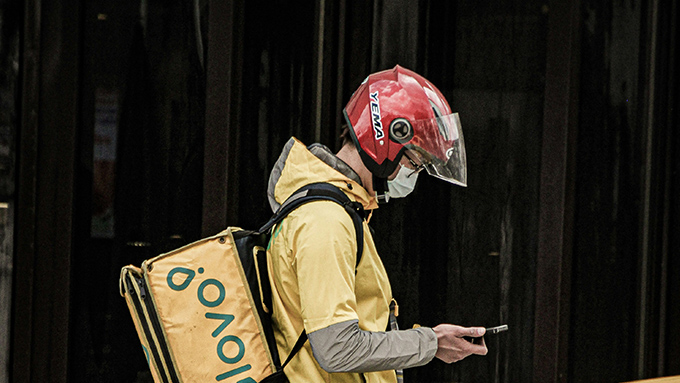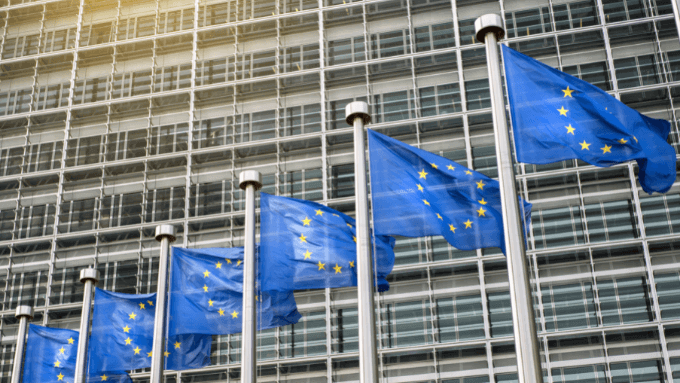Submitting Conflicting Information to the Competition Authority: The Biota Decision
Introduction
The Competition Board (“Board”) has broad powers to request information from undertakings. The legal basis for this authority is provided by Article 14 of Law No. 4054 on the Protection of Competition (“Law No. 4054”). Under this provision, the Board may request any information it deems necessary from public institutions, undertakings, and associations of undertakings while performing the duties assigned to it by law. The Board’s information-gathering power is widely applied in preliminary and full-fledged investigations, in the review of mergers and acquisitions, in sectoral inquiries, and in the assessment of exemption and negative clearance applications. Undertakings are obliged to provide the requested information in an accurate and complete form, within the time frame set by the Board. Failure to comply with this obligation may result in various sanctions, including administrative fines. This article examines cases of conflicting, inaccurate or misleading information submitted to the Competition Authority (“Authority”) in the context of the Board’s recent Biota decision[1] .
The Process in the Biota Decision
The Board initiated a pre-investigation against Biota Bitkisel İlaç ve Kozmetik Laboratuarları A.Ş. (“Biota Bitkisel”) following allegations that it violated Article 4 of Law No. 4054 by determining the resale prices of distributors and restricting online sales. In line with this decision, an on-site inspection was conducted at Biota. During the inspection, the undertaking obstructed and complicated the process. Consequently, in order to apply administrative fines, the Board requested the 2023 consolidated turnover information of the Biota economic group[2] (“Biota”), under Article 16 of Law No. 4054. Biota provided the requested 2023 turnover information to the Authority in its response petition.
Subsequently, following the pre-investigation, the Board decided to initiate a full-fledged investigation against Biota, and the undertaking submitted a settlement application. Within this framework, to serve as the basis for the settlement interim decision, the Board requested the 2023 consolidated turnover information certified by a sworn financial advisor, along with the financial statements verifying this turnover, from Biota. Biota submitted the requested information to the Authority. Upon reviewing the submitted data, the Board identified inconsistencies between the newly provided turnover figures and those previously reported by Biota in its response petition, and requested an explanation from the undertaking regarding these discrepancies.
In its explanation, Biota stated that there was a discrepancy between the two turnover figures submitted to the Authority on different dates, and that part of this discrepancy resulted from the exclusion of e-commerce revenue items from the calculation, while another part arose from intra-group transactions recorded as offsetting invoices.
Within this framework, the Board decided to assess whether the turnover information reported by Biota in its initial response petition constituted false or misleading information.
The Board’s Assessment of Conflicting Turnover Information
In the Biota decision, while assessing whether the discrepancies between the turnover figures reported by the undertaking at different times constituted false or misleading information, the Board referred to examples from its past decisions.
In the Beyaz Et decision[3] , although Tadpiliç stated in its first written defense that the majority of its sales occurred abroad, it was found that all the submitted data related solely to domestic sales. To address this discrepancy, the Board met with the undertaking’s representatives; however, no correction was made, and the second defense was consistent with the initial submission. As a result, the undertaking was found to have provided false or misleading information during the investigation and was subject to an administrative fine under Article 16, paragraph 1(c) of Law No. 4054.
In the Martı decision[4] , it was determined that the user data regarding the opening and per-minute fees of the e-scooters, as well as the information submitted in the annex to the complaint petition, differed when compared with the prices provided by Martı. This discrepancy was assessed as the provision of false or misleading information, and an administrative fine was imposed on the undertaking.
Similarly, in the Farmasi decision[5], the fact that the information provided regarding the contract and brochure determining the duration of the violation did not reflect the truth, and that the amounts of export-oriented resale were reported differently in each document, was assessed as the provision of false or misleading information. Accordingly, the Board decided to impose an administrative fine for each individual action under Article 16, paragraph 1(c) of Law No. 4054.
Finally, in the Özel Okullar decision[6], since extra-class fees are determinative in the calculation of teachers’ salaries, the documents submitted regarding these fees were assessed as the provision of false or misleading information, and the Board decided to impose administrative fines on the relevant undertakings.
Within this framework, in the Beyaz Et, Martı, Farmasi and Özel Okullar decisions, the Board assessed that sales data, price information, export amounts, or documents related to extra-class fees submitted by undertakings did not reflect the truth and therefore constituted the submission of false or misleading information, resulting in administrative fines imposed on the relevant undertakings. Furthermore, it was noted that the significance of the requested information and documents for the file, as well as their potential impact on the final decision, constitutes a factor that increases the likelihood of administrative sanctions.
In this context, the information and documents submitted by Biota to the Authority in the investigation file were found to have directly affected the amount of the fine applied in the Board’s decision regarding the obstruction or complicating of the on-site inspection. Accordingly, the Board evaluated the turnover information for 2023 reported by Biota in its initial response petition as false or misleading and decided to impose an administrative fine on the undertaking corresponding to one thousandth of its 2023 consolidated turnover.
Conclusion
In the course of its investigations, the Board exercises its powers to request information and documents from undertakings in an effective manner. Ensuring that these requests are met accurately, completely, and within the specified time frame is critical for the proper conduct of the investigation. Past decisions demonstrate that the Board carefully evaluates the consistency and accuracy of the information provided. In cases where discrepancies are found between the data submitted by undertakings, explanations for these differences are expected. Furthermore, the significance of the requested information and documents for the file, as well as their potential impact on the final decision, is recognized as a factor that increases the likelihood of administrative sanctions. The Board’s practice clearly shows that the submission of incomplete, false, or misleading information or documents can result in administrative penalties. Accordingly, the safest approach for undertakings is to ensure that the information they provide is consistent with previous submissions and submitted completely within the time frames specified.
- The Board’s decision dated 20.02.2025 and numbered 25-07/157-79.
- Biota Bitkisel İlaç ve Kozmetik Laboratuarları A.Ş., Derma Cos İlaç Medikal ve Kozmetik Sanayii ve İç Ticaret AŞ, and Derma-Cos Kozmetik Sanayi Ticaret İthalat ve İhracat Limited Şirketi together constitute an economic unit.
- The Board’s decision dated 13.03.2019 and numbered 19-12/155-70.
- The Board’s decision dated 21.07.2022 and numbered 22-33/527-213.
- The Board’s decision dated 26.01.2023 and numbered 23-06/69-20.
- The Board’s decision dated 17.08.2023 and numbered 23-39/752-261.
All rights of this article are reserved. This article may not be used, reproduced, copied, published, distributed, or otherwise disseminated without quotation or Erdem & Erdem Law Firm's written consent. Any content created without citing the resource or Erdem & Erdem Law Firm’s written consent is regularly tracked, and legal action will be taken in case of violation.
Other Contents

Mergers and acquisitions are among the types of transactions that are subject to intensive scrutiny by competition authorities. As a rule, competition authorities only subject transactions that exceed certain turnover thresholds and result in a change of control to merger…

The U.S. District Court for the District of Columbia (“Court”) issued its memorandum opinion (Memorandum Opinion) on November 18, 2025, in the antitrust case (“Case”) between the Federal Trade Commission (“FTC”) and Meta Platforms Inc. (“Meta”). The FTC alleges that Meta monopolized the market…

No-poach agreements, which have become one of the most prominent concepts in global competition law in recent years, are defined in the Glossary of Competition Terms as “agreements, whether direct or indirect, whereby one undertaking agrees not to make job offers to, or hire, the employees of another...

Competition authorities around the world have increasingly focused on labor market infringements under competition law, issuing new regulations and guidance recently. Notable examples include the U.S. Department of Justice and Federal Trade Commission’s joint guidance, the Japanese Fair Trade Commission’s...

Chapter 8 of the General Data Protection Regulation (“GDPR”) sets out the legal remedies available to data subjects in the event of a breach of their rights under the GDPR. Accordingly, each data subject has a right to lodge a complaint with the supervisory authority of the Member State in which they reside, work...

Mergers and acquisitions play a critical role in shaping the competitive structure of the market. Although such transactions can lead to positive outcomes such as the provision of products and services at lower prices, the development of new products and technologies, and improvements in quality, they may also...

Technology and the opportunities it brings undoubtedly play a key role in strengthening the competitiveness of market players. In this context, pricing algorithms that enable undertakings to monitor publicly available prices and optimize their own pricing strategies have become widely used, especially by digital platforms...

The Regulation on Fines to Apply in Cases of Agreements, Concerted Practices and Decisions Restricting Competition, and Abuse of Dominant Position (“Former Regulation on Fines”), which entered into force upon its publication in the Official Gazette dated February 15, 2009 and numbered 27142, was...

In the past years, the Turkish Competition Board (“Board”) has closely monitored the activities of undertakings operating in the retail sector. As a result of the Board’s record of administrative fines, horizontal type of violations in the retail sector have been highly publicized. Vertical violations such as resale price...

In recent years, numerous automobile manufacturers have announced their goals to reduce carbon emissions, with many brands setting net-zero carbon targets spanning from production processes to the lifecycle of their vehicles. While ongoing debates persist regarding the significantly higher carbon footprint of...

Under Article 15 of Law No. 4054 on the Protection of Competition (“Law No. 4054”), the Competition Board (“Board”) may conduct on-site inspections at the undertakings’ premises when it deems necessary in fulfilling the duties assigned to it. During the on-site inspection, the Board is authorized to examine all...

Agreements and information exchanges between undertakings in labor markets have recently been examined in various preliminary investigations and investigations initiated by the Turkish Competition Authority (“Authority”). Following the investigations in which some undertakings were subject to...

The Turkish Competition Board’s (Board) decision regarding the acquisition of the international road transport business line of Ekol Lojistik AŞ (Ekol) by DFDS A/S (DFDS) has been one of the most prominent transactions on the competition law agenda recently...

The Competition Board (“Board”) has broad powers to request information from undertakings. The Board’s authority to request information arises from Article 14 of the Law No. 4054 on the Protection of Competition (“Law No. 4054”). Under the relevant provision, the Board may request any information it deems...

Doğuş Otomotiv Servis ve Ticaret A.Ş. (Doğuş) applied to the Turkish Competition Authority for an exemption for the practice of recommending basic wages to be applied to sales and after-sales service employees of its authorized dealers and distributors...

Access to Instagram was blocked ex officio by the Information and Communication Technologies Authority (ICTA) as of 2.08.2024. Under Article 8 of Law No. 5651 on the Regulation of Publications on the Internet and Combating Crimes Committed Through These Publications, ICTA can issue an ex officio access...

It is well known that agreements between employer undertakings with regards to their employees, such as wage-fixing and non-poaching agreements, along with competitively sensitive information exchanges have been under the scrutiny of competition authorities all over the world, including the Turkish Competition...

Automotive is one of the sectors in which the world’s most significant investments are made. The Competition Board (“Board”) has been closely interested in the automotive sector over the years and has conducted various examinations and studies in this field...

Competition authorities around the world continue unabated to investigate competition concerns arising from data collection and processing activities of digital platforms and impose severe sanctions as a result...





The startup ecosystem in Turkey has experienced notable growth in recent years. In the last quarter of 2023, 81 startups secured a combined investment of around 60 million dollars. While the number of investments remained consistent when comparing the third quarter periods of 2022-2023, there was a decrease...

Hub and Spoke cartel is a type of violation that is not clearly defined and regulated under Law No. 4054 on the Protection of Competition (“Law No. 4054”). Decisional practices of foreign competition authorities, particularly the UK Competition and Markets Authority’s decisions (“CMA”), are instructive concerning...

The Competition Board ("Board") made an addition to its line of decisions on resale price maintenance with its decision on Sunny Elektronik Sanayi ve Ticaret A.Ş. ("Sunny") . In its decision, the Board thoroughly examined the allegations regarding Sunny's involvement in maintaining resale prices and restricting...

It is observed that the Competition Authority (“Authority”) has recently scrutinized various industries such as fast-moving consumer goods, labor market, pharmaceuticals, and cement. When the reasoned decisions of the Competition Board (“Board”) published in October are examined, it can be seen that the...

Jules Verne says, “Everything on earth has a limited lifespan, nothing that will exist forever can be created by human hands”. Perhaps change is the only constant concept in all our lives. Despite two major world wars and countless periods of crisis, humanity has been undergoing a great change and...

At the meeting of the Fédération Internationale de Football Association (“FIFA”) held on 16 December 2022, the FIFA Council approved the FIFA Football Agents Regulations (“FFAR”). In the FFAR, various amendments have been made, such as the introduction of a maximum service fee limit that football agents are...

Resale Price Maintenance (RPM) is still considered a hardcore restriction under the recently revised Vertical Block Exemption Regulation (VBER), which means that it cannot benefit from a statutory exemption under Article 101(1) TFEU, unlike certain other types of vertical agreements. However, it has been debated...

In competition law, it is important to accurately determine the concept of undertaking, especially in terms of mergers and acquisitions. Therefore, the concept of economic entity aims to reveal the economic units covered by the undertakings. The relationship between the concept of economic entity and family ties comes...

In these days when the Competition Board (“Board”) frequently imposes administrative fines for preventing on-site inspections and both the Competition Authority (“Authority”) and undertakings take legal and technical measures regarding on-site inspections, a striking development has occurred. In its decision...

Online advertising has become an important source for businesses for promoting products and services and meeting consumers, as a result of the rapid development of information technologies and increase in the use of internet. Delivering targeted messages to consumers at the right time through the digital...

Selective distribution systems refer to a type of distribution system in which suppliers commit to selling the contracted goods or services directly or indirectly to distributors selected based on specified criteria, while the distributors commit not to sell the said goods or services to unauthorized...

Fast-moving consumer goods is undoubtedly one of the sectors that the Competition Authority has been working most intensively since the COVID 19 pandemic. Among the most important developments of this period was the Sector Inquiry initiated on Fast Moving Consumer Goods (“FMCG”) Retailing...

In the decision of the Constitutional Court ("Constitutional Court" or "Court") dated 09.11.2022, numbered 2020/67 E. 2022/139 K. (the "Decision"), the annulment of certain articles of the Law Amending the Law on the Protection of Competition No. 4054 ("Law No. 7246") was requested...

In Turkish competition law, certain types of mergers and acquisitions are subject to Turkish Competition Board’s (“Board”) approval in order to gain legal validity. Pursuant to Article 7 of the Law No. 4054 on the Protection of Competition (“Law No. 4054”), the Board is competent to define mergers and acquisitions...

Recently, the Competition Board (the Board) had imposed administrative fines on banks and financial institutions for failing to respond to the request for information within the scope of a preliminary investigation.[i] The request for information that lays the groundwork for the administrative fine imposed by...

Amazon, a world-famous company, is an e-commerce company that operates the world’s largest online shopping platform. In the backstage, Amazon is a data-driven company whose retail decisions are mostly driven by automated systems, fueled by the relevant market data. That being said, Amazon has a dual...

The right to make on-site inspections is one of the Competition Board’s (“Board”) most important tools for revealing whether Law No. 4054 on the Protection of Competition (“Law No. 4054”) has been violated. The effective use of this authority is quite important in terms of obtaining fruitful results from...

“Harese” is an interesting Arabic word. There is a thorn that camels love very much in the desert. The camel eats the thorn with great greed. So much so that, its mouth bleeds as it eats, but it doesn't stop eating. The taste of the thorn is mixed with the salty taste of its own blood. This mixed taste drives the camel...

Turkey’s leading pay television service provider, Krea İçerik Hizmetleri ve Prodüksiyon A.Ş. (“Digiturk”), is frequently the subject of complaints made to the Competition Authority (“Authority”). In fact, the Competition Board (“Board”) issues a new decision about Digiturk almost every year. In these decisions...

The French Competition Authority (Autorité de la Concurrence), within the scope of the competition law proceeding initiated upon the complaint of Criteo SA (“Criteo”), accepted the commitments proposed by Meta Platforms Inc., Meta Platforms Ireland Ltd., and Facebook France...

While the scope of Competition Board’s (“Board”) power to conduct on-site inspections has increased with the introduction of Guidelines on Examination of Digital Data during On-site Inspections (“Guidelines”), nowadays the amount of monetary fines imposed on undertakings continue to...

The hub and spoke cartel, which is a relatively new type of violation in terms of Turkish competition law, is defined as the indirect exchange of information between two independent undertakings which are horizontal competitors on the supplier or retailer level, through another undertaking...

The settlement mechanism has only recently been introduced to Turkish competition law practice. It entered into force with the amendment made to the Law on the Protection of Competition (“Law”) numbered 4054 on 16.06.2020, and has been in effect for less than two years. In this relatively...

Due to their increasing share in the economy and rapid growth rate, e-marketplace platforms have come under the increasing scrutiny of the Turkish Competition Authority (“Authority”) as well as many competition authorities around the world...

Pursuant to the Amendment Communiqué Concerning the Mergers and Acquisitions Requiring the Competition Board’s Approval (“Amending Communiqué”) published in the Official Gazette dated March 4th, 2022 and numbered 31768, certain amendments have been introduced...

The Competition Board (“Board”) has recently published a reasoned decision in which it evaluated BSH Ev Aletleri Sanayi ve Ticaret A.Ş.’s (“BSH”) request for negative clearance or exemption with regard to its practice of prohibiting authorized dealers from making sales through online marketplaces...

Shahmaran, a Mesopotamian myth, is believed to take place in Tarsus. According to the myth, the shah of snakes is the immortal and omniscient "Shahmaran." Shahmaran is described as a beautiful woman living in her cave with her snakes...


During the COVID-19 pandemic, competitive concerns about the pricing behavior of chain markets, manufacturers, and wholesalers engaged in the retail trade of food and cleaning supplies led to an investigation by...

When the past decisions and the recent decisions of the Competition Board (“Board”) are examined, a significant increase can be observed in the number of decisions where the Board found hindrance or obstruction of on-site inspections. This situation shows that...

The European Commission began investigating the collusive behavior of Credit Suisse, UBS, Barclays, RBS, and HSBC in the Foreign Exchange (forex) spot trading market in 2019. With the recent press release dated 02.12.2021, the Commission announced that the case is now closed...


Digitalization, in particular, necessitates the rewriting of competition law rules. Competition law is at the center all questions regarding e-commerce and digital platforms. The aforementioned platforms, which have become prominent due to innovations in...

















































